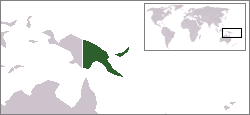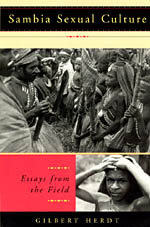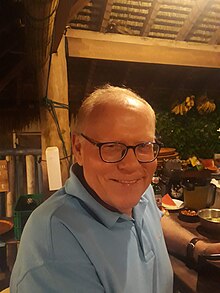
Sexology is the scientific study of human sexuality, including human sexual interests, behaviors, and functions. The term sexology does not generally refer to the non-scientific study of sexuality, such as social criticism.
Gender studies is an interdisciplinary academic field devoted to analysing gender identity and gendered representation. Gender studies originated in the field of women's studies, concerning women, feminism, gender, and politics. The field now overlaps with queer studies and men's studies. Its rise to prominence, especially in Western universities after 1990, coincided with the rise of deconstruction.
Third gender is a concept in which individuals are categorized, either by themselves or by society, as neither a man or woman. It is also a social category present in societies that recognize three or more genders. The term third is usually understood to mean "other", though some anthropologists and sociologists have described fourth and fifth genders.
Societal attitudes towards same-sex relationships have varied over time and place. Attitudes to male homosexuality have varied from requiring males to engage in same-sex relationships to casual integration, through acceptance, to seeing the practice as a minor sin, repressing it through law enforcement and judicial mechanisms, and to proscribing it under penalty of death. In addition, it has varied as to whether any negative attitudes towards men who have sex with men have extended to all participants, as has been common in Abrahamic religions, or only to passive (penetrated) participants, as was common in Ancient Greece and Ancient Rome. Female homosexuality has historically been given less acknowledgment, explicit acceptance, and opposition.
Human male sexuality encompasses a wide variety of feelings and behaviors. Men's feelings of attraction may be caused by various physical and social traits of their potential partner. Men's sexual behavior can be affected by many factors, including evolved predispositions, individual personality, upbringing, and culture. While most men are heterosexual, there are minorities of homosexual men and varying degrees of bisexual men.
Don Kulick is a Swedish anthropologist and linguist who is the professor of anthropology at Uppsala University. Kulick works within the frameworks of both cultural and linguistic anthropology, and has carried out field work in Papua New Guinea, Brazil, Italy and Sweden. Kulick is also known for his extensive fieldwork on the Tayap people and their language in Gapun village of East Sepik Province, Papua New Guinea.
A cultural universal is an element, pattern, trait, or institution that is common to all known human cultures worldwide. Taken together, the whole body of cultural universals is known as the human condition. Evolutionary psychologists hold that behaviors or traits that occur universally in all cultures are good candidates for evolutionary adaptations. Some anthropological and sociological theorists that take a cultural relativist perspective may deny the existence of cultural universals: the extent to which these universals are "cultural" in the narrow sense, or in fact biologically inherited behavior is an issue of "nature versus nurture". Prominent scholars on the topic include Emile Durkheim, George Murdock, Claude Lévi-Strauss, and Donald Brown.
The National Sexuality Resource Center (NSRC) is a San Francisco-based organization which advocates the positive representation of human sexuality, creates educational content, and provides training about human sexuality. The center also counters what it views as negative representations of sexuality while fostering dialog of sexuality issues as a natural part of being human.
John H. Gagnon was a pioneering sociologist of human sexuality who wrote and edited 15 books and over 100 articles. He collaborated with William Simon to develop the piece he is perhaps best recognized for: "Sexual Conduct: The Social Sources of Human Sexuality" (1973). He was Distinguished Emeritus Professor of Sociology at the State University of New York at Stony Brook, where he taught and from 1968 to 1998. In that same time frame, he also dedicated himself to advancing the field of sociology through his research.
Clinical ethnography is a term first used by Gilbert Herdt and Robert Stoller in a series of papers in the 1980s. As Herdt defines it, clinical ethnography
is the intensive study of subjectivity in cultural context...clinical ethnography is focused on the microscopic understanding of sexual subjectivity and individual differences within cross-cultural communities. What distinguishes clinical ethnography from anthropological ethnography in general is (a) the application of disciplined clinical training to ethnographic problems and (b) developmental concern with desires and meanings as they are distributed culturally within groups and across the course of life.
Donald F. Tuzin was an American social anthropologist best known for his ethnographic work on the Ilahita Arapesh, a horticultural people living in northeast lowland New Guinea, and for comparative studies of gender and sexuality within Melanesia. Tuzin was born in Chicago, Illinois, grew up in Winona, Minnesota, and spent his teen years again in Chicago. He received his B.A. from Western Reserve University in Ohio, where he became interested in anthropology and participated in the excavation of Native American archaeological sites left by the Mound Builders. He also received his master's degree from Case Western Reserve.

Lesbian, gay, bisexual, and transgender (LGBT) people in Papua New Guinea face legal challenges not experienced by non-LGBTQ residents. Male same-sex sexual activity is illegal, punishable by up to 14 years' imprisonment. The law is rarely enforced, but arrests still do happen, having occurred in 2015 and 2022. There are no legal restrictions against lesbian sex in the country.
Human sexuality is the way people experience and express themselves sexually. This involves biological, psychological, physical, erotic, emotional, social, or spiritual feelings and behaviors. Because it is a broad term, which has varied with historical contexts over time, it lacks a precise definition. The biological and physical aspects of sexuality largely concern the human reproductive functions, including the human sexual response cycle.

The Marind or Marind-Anim are an ethnic group of New Guinea, residing in the province of South Papua, Indonesia.
William Leap is an emeritus professor of anthropology at American University and an affiliate professor in the Women's, Gender and Sexuality Studies Program at Florida Atlantic University. He works in the overlapping fields of language and sexuality studies and queer linguistics, and queer historical linguistics.
The Simbari people are a mountain-dwelling, hunting and horticultural tribal people who inhabit the fringes of the Eastern Highlands Province of Papua New Guinea. The Sambia – a pseudonym created by anthropologist Gilbert Herdt – are known by cultural anthropologists for their acts of "ritualised homosexuality" and semen ingestion practices among pubescent boys. The practice occurs due to Sambari belief that semen is necessary for male growth.
Simbari or Chimbari is an Angan language of Papua New Guinea.

Nature, Culture and Gender is a book length social science essay collection that analyzes views that describe "nature" as inferior to "culture". Hence, the authors draw on anthropology and history to critique ideologies that, by equating women with nature, renders the female gender as inferior, while the male, equated to culture is seen as superior. The co-editors of this book published in 1980 by Cambridge University Press are Carol MacCormack and Marilyn Strathern. The contributing authors are Carol P. MacCormack, Maurice Bloch, Jean H. Bloch, L. J. Jordanova, Olivia Harris, Jane C. Goodale, Gillian Gillison, Marilyn Strathern.

Sambia Sexual Culture: Essays from the Field is a 1999 book about the Simbari people and their sexual practices by the anthropologist Gilbert Herdt. The book received negative reviews, accusing Herdt of being biased in his approach and his conclusions. In the book the Simbari people are called Sambia people
Binabinaaine or pinapinaaine are people who identify themselves as having a third-gender role in Kiribati and Tuvalu, and previously in the Gilbert and Ellice Islands which reunited the two archipelagoes. These are people whose sex is assigned male at birth, but who embody female gendered behaviours.






